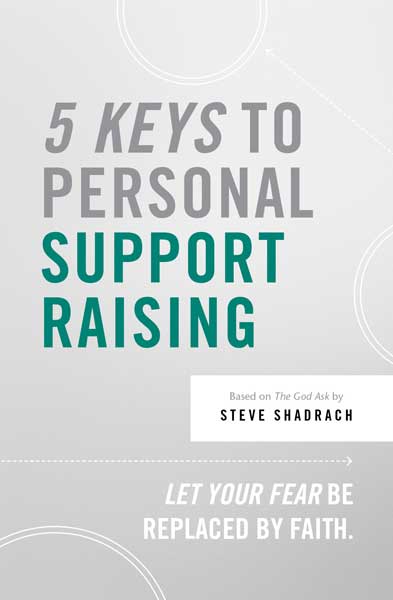
Since 2010 I have trained hundreds of missionaries in partnership development and during this time there has not been a week that I was not in a coaching relationship. Having personally coached over 200 missionaries, here are a few things that I have learned which can help you get the most out of your coaching relationship and partnership development (PD) season.
Decide that you are going to work with a coach. Our records indicate that missionaries who use a coach raise approximately 33% more funding than those who do not in the same amount of time. This means that of the two missionaries in the same length of season, the coached missionary hits about $4000 a month and the uncoached missionary hits $2680. During their campaign season, our coached missionaries averaged higher dollar amounts per partner, per month. Our data also reveals that in the years following, coached missionaries do much better with year-end asks, experience less attrition, do better with special gift asks, and overall stay in ministry longer.
Find a coach with experience in PD, preferably one within your organization. Look for a coach who has been in ministry for a while, is fully funded, and has helped others reach full funding. In a case where a coach is not available, find a qualified person that has raised their own partnership team who will challenge you, hold you accountable, and even confront you if needed (probably not your best friend). If you’re overseas, try to find a coach prior to beginning your furlough if possible.
Interview your coach. Find out their PD process and strategy. How long did it take them to get funded and what worked for them? What is their timeline and how long they think it will take for you to be fully funded? Try to find a coach who has the availability to successfully coach you. Meeting with a coach prior to campaign launch is a great way to get all your pre-campaign steps and materials in order. Once you start partnership appointments, a weekly 20-minute coaching call with options for additional email or text is preferable.
Be Professional in Your Approach
- If you are struggling with setting up appointments via phone call, be sure to communicate that with your coach during your standing weekly appointment. Always take the initiative to reach out to your coach if you are stuck; don’t make them track you down.
- If your coach has assigned you a to do list or tasks, make sure to have them completed and submitted, if applicable, before your next meeting. If you have questions for your coach, document them throughout the week and submit them by email or text before the next coaching appointment.
- Start your coaching call on time and end on time. If you are well prepared, you can get a lot done in 20 minutes.
- Honor your scheduled appointments with your coach. Give as much advance notice as possible if you must reschedule.
- Stick to the timeline/schedule/strategy that you and your coach have come up with.
Be willing to be transparent. A good coach will not always know when you’re struggling; be honest with them about your emotions, abilities, time management, tasks, strategy, and follow up. Your PD season can be a rollercoaster of emotions and full of twists and turns, but your coach can’t help unless you are honest with them. Having someone who really understands and will pray for you can be very helpful.
Document your activities weekly and share them with your coach. I recommend creating a one-page document such as this one where you can accurately track each step of your PD process. Feel free to use this template, borrow from it, or rearrange it in a way that’s conducive to your partnership model. You may want to create a digital version to conveniently share with your coach. This will help you stay accountable, will help the coach understand your efforts, and will catch any problems early.
Listen well and follow instructions: Your coach is there for your benefit. They are there to share best practices and identify problems in order to help you succeed. Listen to their recommendations and follow their instructions. They have been where you are and have been successful. Now it’s your turn.

